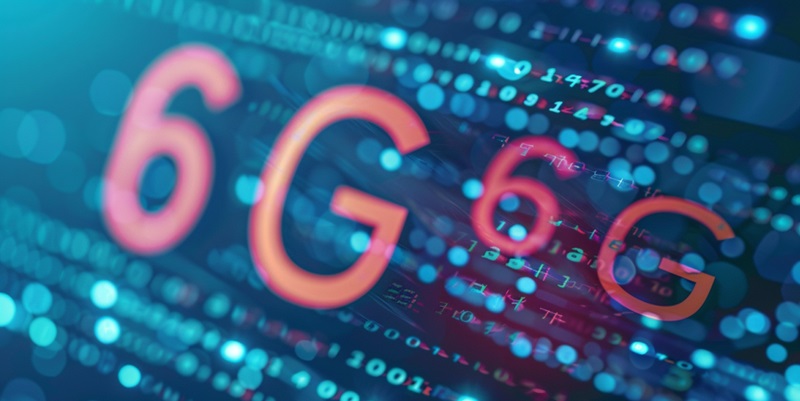The emergence of 6G technology promises to usher in an unprecedented era of wireless communication, surpassing the capabilities established by 5G. This introduction sets the stage for a deep dive into the transformative effects 6G is projected to have on communication and societal functions.
The Evolution from 5G to 6G
The Technical Leap Forward
6G is expected to build upon the already impressive advancements of 5G by offering even faster speeds, lower latency, and the ability to connect a massive number of devices seamlessly. Where 5G is revolutionizing the current digital landscape, 6G will enhance it to levels far beyond what we have today. It could provide data rates of up to 1 terabit per second, making the networks about 100 times faster than 5G. This potential leap forward means enhanced virtual reality experiences, instantaneous cloud services, and the facilitation of services yet to be invented.
The Integration of AI with 6G
Artificial Intelligence (AI) will be fundamental in optimizing 6G network performance. By integrating AI into network operations, it will be possible to allocate resources dynamically, anticipate maintenance needs, and manage data traffic efficiently. Networks will become ‘smarter’, able to adapt to changing patterns of use without human intervention. Predictive maintenance, powered by AI, will help minimize downtime and enhance the reliability of services. This integration will lead not only to a better network but also to a more personalized and responsive end-user experience.
Pioneering Applications of 6G
Smart Cities and IoT
The advent of 6G will significantly enhance smart city infrastructures, enabling a far superior level of IoT connectivity. Urban areas will experience a transformation with traffic systems, public services, and environmental monitoring all benefiting from real-time data processing and interactions. Intelligent energy systems will become more efficient, adapting to the needs of the population dynamically. Smart buildings will become the norm, intelligently managing resources such as lighting and heating, and contributing to a more sustainable city ecosystem.
Revolutionizing Healthcare and Transportation
6G technology has the potential to revolutionize the healthcare industry by enabling innovative applications such as remote surgery. Surgeons could perform procedures from across the globe with virtually no time delay, making specialized medical care more accessible. In transportation, 6G will be critical for the advancement of autonomous vehicles and drones. With ultra-reliable low-latency communication, autonomous systems can make faster, more precise decisions, improving road safety and reducing traffic congestion.
Overcoming Challenges in 6G Technology
Technical and Spectrum Challenges
The progression to 6G involves a range of technical and spectrum management challenges. As we venture into higher frequency bands like terahertz, signal propagation becomes more challenging, requiring innovation in both materials and waveforms. Advanced signal processing techniques and intelligent spectrum management will be crucial to achieving the high speeds and capacities envisaged for 6G. Research into these areas is ongoing, and solutions to these technological hurdles will define the path to successful 6G deployment.
Energy, Security, and Sustainability
The energy consumption of 6G networks is a significant concern. The quest for sustainability calls for the development of energy-efficient protocols and hardware. On the security front, the increased complexity and ubiquity of the network amplify the potential risks. Strong encryption and advanced cybersecurity measures are prerequisites for a secure 6G environment. Sustainable practices and strong security protocols are both areas worthy of focus as we move toward a 6G future.
Socio-Economic Impacts of 6G
Market Opportunities and Job Creation
The rollout of 6G will create a multitude of market opportunities and spawn new job sectors, particularly in network management, cybersecurity, and data analytics. The exponential growth in digital services will necessitate a workforce capable of handling the complexities of 6G technology. This evolution will not only create jobs but will also stimulate economic growth as new services and applications become possible, opening up previously unexplored markets.
Enhancements in Daily Living
6G is set to profoundly impact daily life, making communication systems more efficient and reliable. It will enable a new level of connectivity in homes and workplaces, supporting more advanced telemedicine services, smart home technology, and providing educational opportunities that transcend physical location. In essence, 6G will remove barriers to connectivity, making digital inclusivity more achievable for populations worldwide.
Global Race for 6G Leadership
International Initiatives and Collaborations
Nations such as China, the US, and the EU are spearheading the race for 6G leadership through strategic initiatives and collaborations. Pioneering research efforts and the pooling of resources from tech giants are crucial in overcoming the technical barriers that 6G presents. International collaboration is essential for setting global standards, ensuring interoperability, and accelerating the development process.
Preparing for a Connected Future
The dawn of 6G technology marks the beginning of a new revolution in wireless communication, building upon the foundation set by its predecessor, 5G. As the sixth generation of mobile networking beckons, it promises to bring about transformative changes that will exceed the already impressive capabilities of 5G. 6G is expected to feature even higher data rates, lower latency, greater reliability, and remarkably improved connectivity.
The implications of 6G technology are vast and varied, touching upon every aspect of modern communication. It’s slated to provide exponential improvements in the transfer and processing of data, powering a future where smart cities, autonomous systems, remote medical services, and pervasive artificial intelligence are the norm rather than the exception. The larger bandwidth and faster transmission speeds of 6G will enable applications that are currently unimaginable, paving the way for innovations that could redefine societal operations.
Moreover, 6G could potentially harmonize the physical, human, and digital worlds more seamlessly, creating a truly interconnected global network. With its ability to support advanced technologies like holographic communication and high-fidelity mobile augmented reality, 6G is set to expand the horizons of virtual presence and remote interaction. As we look towards this upcoming enhancement in the field of wireless technology, it’s not merely about the evolution of communication; it’s about a leap into a futuristic society where the exchange and application of information occur with unprecedented speed and efficiency.

